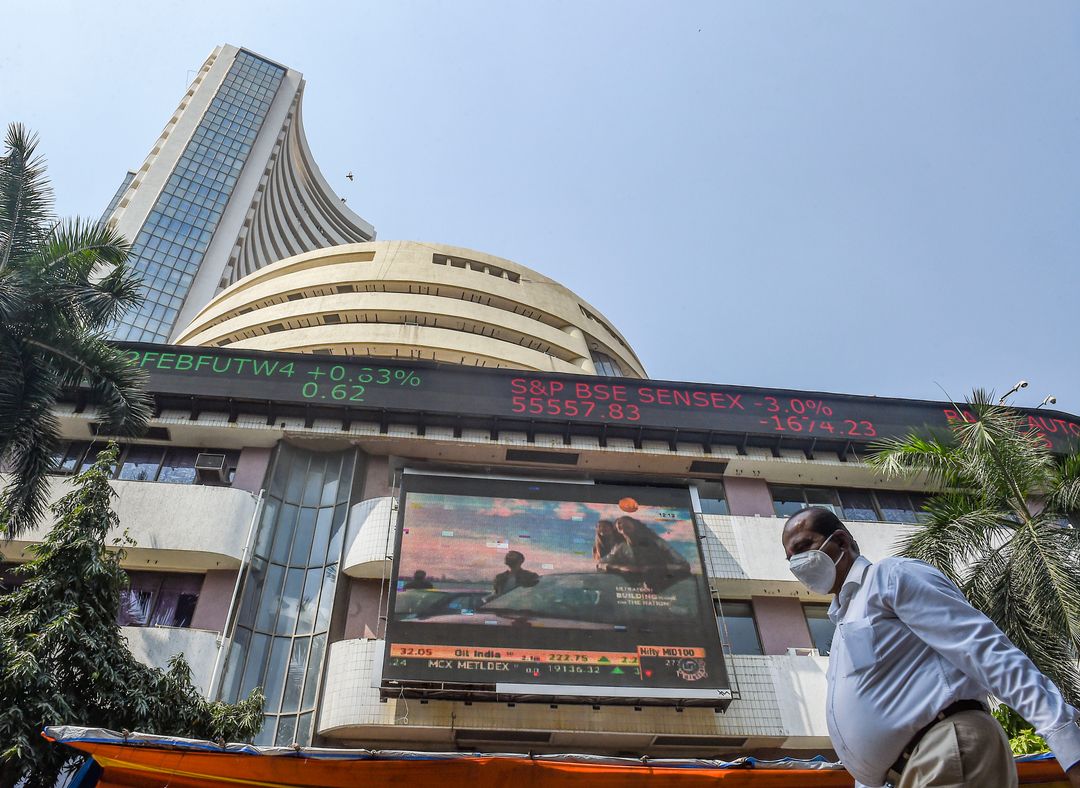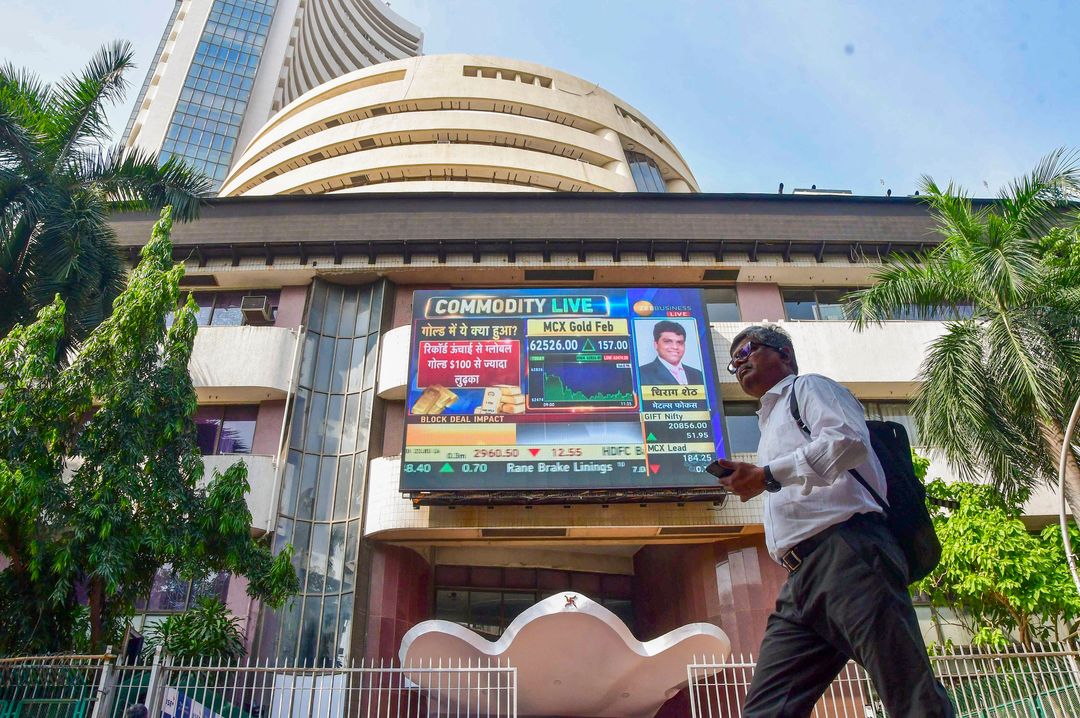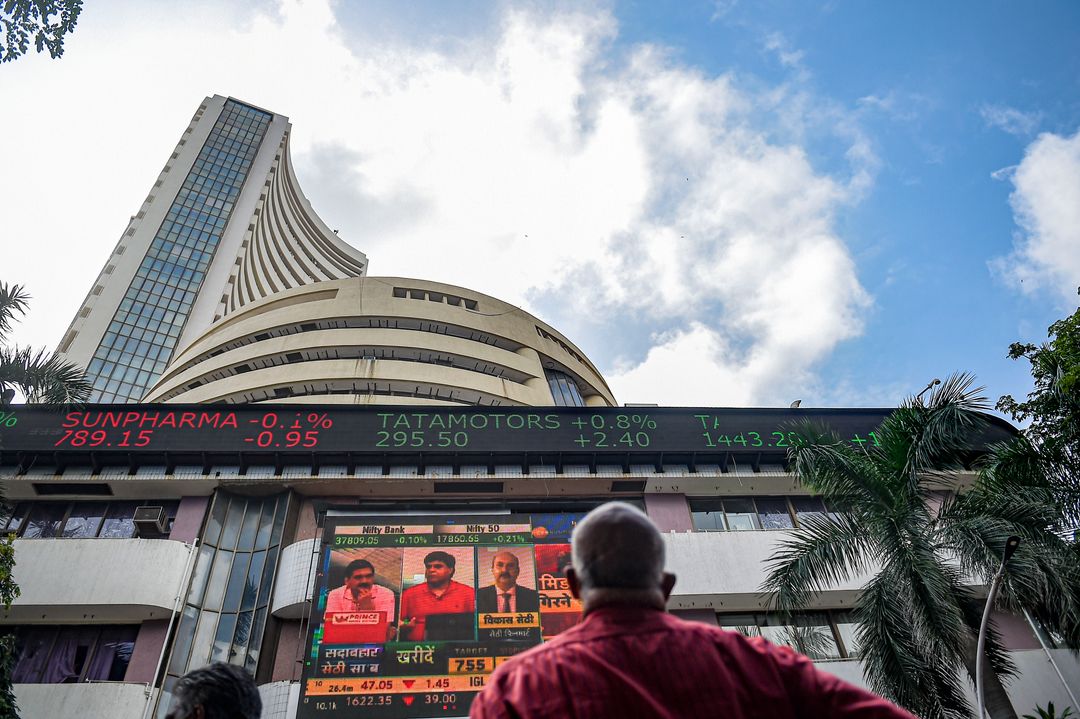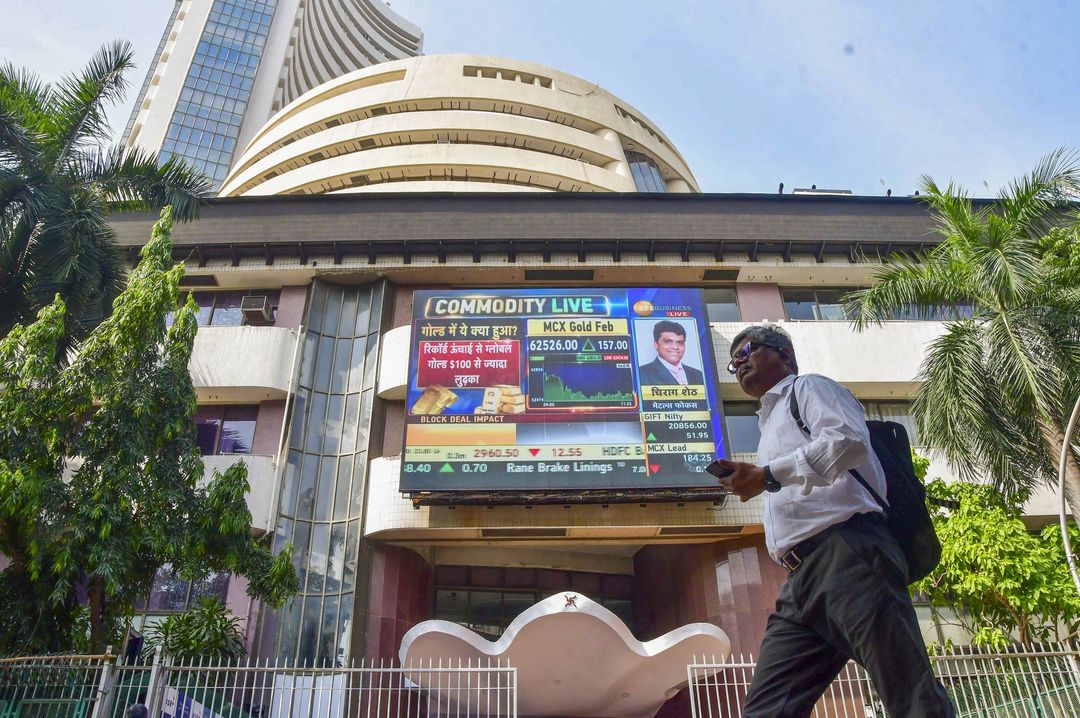
New Delhi, Feb 26 – Indian equity markets are grappling with sharp corrections, as the NSE Nifty has plunged over 14% from its record high in September last year. The sell-off is attributed to a mix of stretched valuations, continuous foreign fund outflows, underwhelming corporate earnings, and escalating global trade tensions.
The BSE Sensex reached an all-time peak of 85,978.25 on September 27, 2024, while the Nifty hit a lifetime high of 26,277.35 on the same day. Since then, the Nifty has nosedived 3,729.8 points (14.19%), and the Sensex has tumbled 11,376.13 points (13.23%), reflecting bearish sentiment across the markets.
Key Factors Behind Market Decline
The equity markets have been under sustained pressure since October last year due to multiple factors:- Weak Corporate Earnings: Many large corporations posted disappointing Q3 results, denting investor confidence.
- Global Trade War Concerns: Trade policies, including tariff hikes imposed by the US under President Donald Trump, have sparked fears of a broader trade war.
- Foreign Institutional Investor (FII) Exodus: The total FII outflows have surpassed ₹1 lakh crore in 2025.
- Rupee Weakness & Rising US Bond Yields: A stronger dollar, coupled with high US bond yields, has made Indian equities less attractive.
- Expensive Valuations: Overvaluation concerns have prompted investors to seek better opportunities in markets like China.
Expert Insights on Market Trends
Puneet Singhania, Director of Master Trust Group, stated that a correction of this scale was inevitable given the combination of high valuations, global uncertainties, and sustained foreign investor withdrawals. "The Sensex has declined over 13% from its peak, largely due to heavy FII outflows, technical weakness, and a deteriorating macroeconomic environment," he said.Adding to the concerns, Prashanth Tapse, Senior VP (Research) at Mehta Equities Ltd, noted, "Foreign investors remain in an exit mode, with no signs of slowing down. Expensive valuations are forcing investors to reassess their exposure to Indian equities."
FIIs Shift Focus Amid Rising Risks
According to Akhil Puri, Partner at Forvis Mazars India, foreign investors are diverting funds toward more attractive markets due to:- Higher US bond yields
- Strengthening dollar
- Weakening Indian rupee
- Overpriced Indian equities
Global Trade Worries Add to Market Volatility
A major market risk remains the looming threat of a global trade war. The US recently increased tariffs by 25% on steel and aluminum imports and is considering reciprocal tariffs on other goods, which could disrupt global trade flows and affect emerging markets like India.Outlook: Will the Market Rebound?
Looking ahead, analysts believe that a market recovery is possible, but certain conditions must align. Puneet Singhania highlighted that a rebound could be expected if:- Corporate earnings improve
- Global economic conditions stabilize
- The Indian government implements market-friendly policies
Vinod Nair, Head of Research at Geojit Financial Services, echoed similar sentiments: "The market remains cautious, and investors will wait for strong earnings recovery, improved global liquidity, and a stable currency before re-entering aggressively."
As volatility grips the Indian stock market, investors remain watchful of macroeconomic trends, corporate earnings, and global trade developments to gauge the direction ahead.



